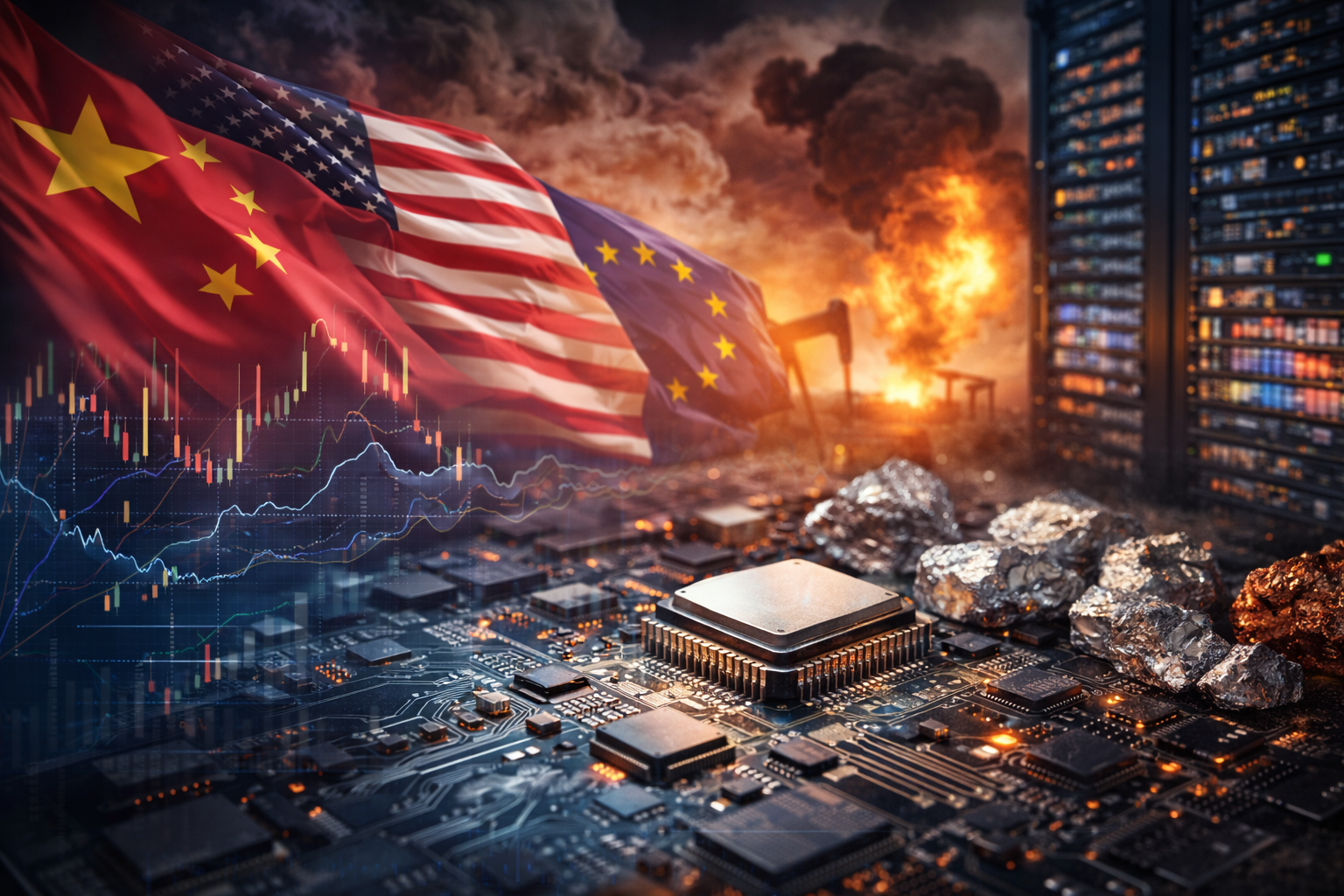Global markets are increasingly shaped by the seismic shift toward artificial intelligence, and few moves signal that better than SoftBank Group’s latest strategic pivot. The Japanese investment powerhouse has sold off its entire Nvidia Corporation stake—worth roughly $5.8 billion—according to reporting from the Financial Times. In an environment where AI infrastructure demand is intensifying and valuations for chipmakers remain sky-high, the move underscores shifting priorities among major institutional players.
SoftBank isn’t abandoning AI. It’s reloading.
SoftBank’s Bold Repositioning
Nvidia, the trillion-dollar giant powering the current AI revolution, has enjoyed extraordinary momentum. Its GPUs have become synonymous with AI training and high-performance workloads. Yet even as Nvidia’s market leadership remains uncontested, the valuations of AI hardware stocks have drawn increasing scrutiny from analysts, with Bloomberg noting that institutional investors are beginning to evaluate whether the upside is already priced in.
Enter SoftBank’s tactical shift: using cash from the divestment to intensify investments into AI infrastructure, digital ecosystems, and emerging platforms that support long-term growth rather than remaining concentrated in a single outperforming chipmaker.
SoftBank founder Masayoshi Son has made no secret of his ambition to lead the next AI wave. In recent comments, Son emphasized the importance of “foundational AI ecosystems” rather than depending on one segment of the value chain. Selling Nvidia at a peak moment allows SoftBank to strategically diversify and reduce concentration risk—while retaining exposure to the booming AI sector.
Why This Matters for Investors
SoftBank’s move is more than a portfolio shift. It is a signal.
First, it highlights that even early believers in Nvidia’s explosive rise are beginning to question the sustainability of its valuation. While Nvidia continues to dominate the GPU market—with Reuters reporting its recent sales surge and expanding order backlog—investors must weigh market enthusiasm against risk of future compression.
Second, the sale reinforces the idea that AI is no longer just about chips. It’s about the infrastructure arms race:
- data centers
- power capacity
- cloud services
- networking
- AI-optimized software
- foundational model platforms
With generative AI usage accelerating and computing needs rising exponentially, the ecosystem surrounding chips may offer stronger long-term diversification.
Third, SoftBank is positioning itself as a multi-vector investor in AI rather than relying solely on high-beta tech names. The firm’s Vision Fund already has exposure to robotics, semiconductors, automation, and data-centric sectors, further demonstrating a portfolio-wide pivot into broader AI infrastructure.
Valuation Pressure and Market Dynamics
The AI sector remains one of the hottest themes globally, but the speed and scale of capital inflows have raised valuation questions. Several analysts, including those cited by CNBC and Goldman Sachs research notes, have warned that large-cap tech names could be entering an “overextended” phase.
Here’s what’s driving concern:
- Peak optimism: Nvidia’s meteoric rise has been fueled by unprecedented demand—but markets tend to anticipate future earnings early.
- Competitive landscape forming: Rival chipmakers such as AMD and newcomers like Intel’s Gaudi line are intensifying competition.
- AI infrastructure bottlenecks: Data-center capacity, power supply constraints, and rising operational costs could slow scaling.
SoftBank’s timing suggests it sees greater value downstream—where infrastructure, not just chips, will enable the next growth phase.
Future Trends to Watch
Investors should monitor key structural shifts unfolding beneath the AI boom:
1. AI Infrastructure Expansion
Cloud providers—Amazon Web Services, Google Cloud, Microsoft Azure—continue to invest billions in data-center buildouts. Reuters recently noted tech companies’ increased capital expenditure for AI-optimized environments, with 2026 expected to be another record-setting year.
2. AI Power Demand
AI workloads are energy-intensive. Utilities, nuclear energy developers, and power-management technology firms are poised to benefit from rising grid demand.
3. AI Software Monetization
While hardware grabs headlines, software-as-a-service models may drive durable revenue. Companies focused on AI automation, developer tools, enterprise integration, and cybersecurity could see multi-year growth waves.
4. AI Regulation & Policy
Governments are accelerating AI policy frameworks. Compliance and trust frameworks will shape winners across fintech, healthtech, and enterprise AI.
Key Investment Insight
SoftBank’s divestment signals an emerging strategic mindset:
AI is bigger than chips—investors must expand their lens.
While Nvidia remains a strong player in AI hardware, investors may consider:
- Diversifying across AI infrastructure (data centers, cloud operators, connectivity providers).
- Examining AI-enabled enterprise software for scalable revenue streams.
- Balancing exposure with risk management given valuation sensitivity.
The trend is clear: as AI penetrates deeper into global technology systems, opportunities expand beyond the chipmakers. Strategic allocation, not hype-driven allocation, is increasingly critical.
Stay Informed
AI is evolving in real time. To stay ahead of these shifts—and understand how major players are positioning—follow daily market coverage and analysis at MoneyNews.Today, your trusted source for investor-focused insights across global markets.





